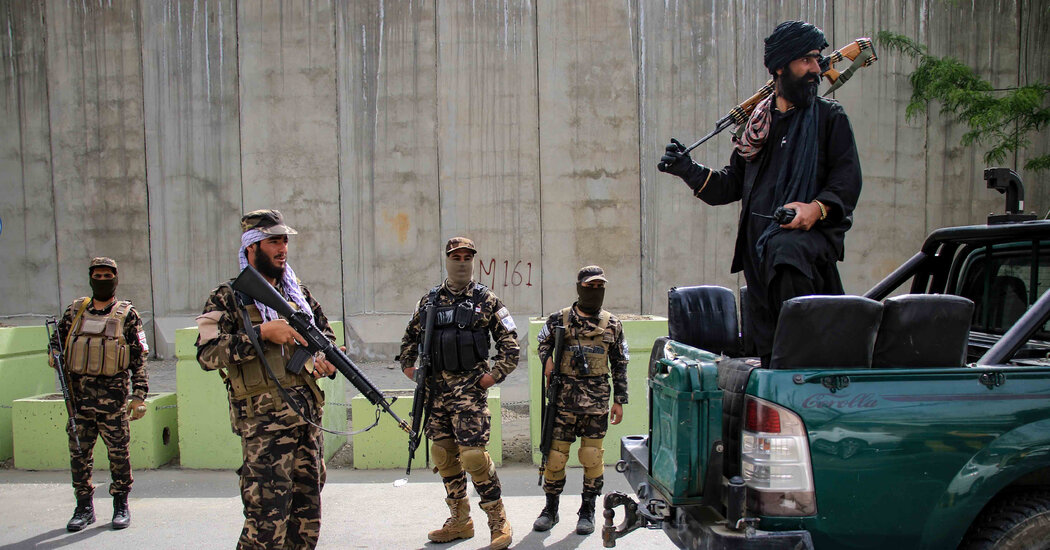For the Taliban, a New Era of Isolation Has Arrived

Hours after an American drone strike killed the leader of Al Qaeda, Ayman al-Zawahri, in downtown Kabul, Taliban security forces rushed to seal off the site. Green tarps were thrown over destroyed windows. Checkpoints were put up, and shops were closed.
But there was no hiding the damage that had been done to the Taliban’s nascent government, which had tried to shelter the world’s most wanted terrorist from the eyes of the American government.
The strike early Sunday morning, and the public revelation that the Taliban had sheltered a key plotter of the Sept. 11, 2001, terrorist attacks in the heart of the Afghan capital, was a watershed moment for the group’s new government. And it underscored the reality of their rule: The Taliban have not fundamentally reformed from their first regime in the 1990s, when their hard-line policies and relationship with Al Qaeda turned the country into a pariah state.
Retaliation against Al Qaeda and its Taliban allies who sheltered the terrorist group drove the United States to invade Afghanistan in 2001, the beginning of a two-decade-long war that ravaged the country.Now, the Taliban seems to be once more treading the same path, fueling criticism that their government should never be internationally recognized, and raising questions about whether a new era of U.S. airstrikes in Afghanistan has begun.
A statement from the Taliban condemned the American airstrike, without specifically mentioning al-Zawahri or Al Qaeda. “It is an act against the interests of Afghanistan and the region,” said Zabihullah Mujahid, a spokesman for the Taliban government. “Repeating such actions will damage the available opportunities.”
The strike comes at an already tenuous moment for the Taliban. Since seizing power, the group has promised to moderate as it seeks international recognition and aid from Western diplomats abroad, even while staying true to its hard-line ideological beliefs at home.
In recent months, the government has enacted increasingly oppressive policies, including restricting women’s rights to travel and work. And it has reneged on an early promise to allow girls to attend secondary school, in a stark echo of the first rule.
Those measures have increasingly turned international attitudes against the government and have cost the country millions in foreign aid, worsening its dire economic crisis. Now, the airstrike against Al Qaeda’s leader in the heart of Kabul has opened a new chapter for the Taliban government, seemingly cementing its international isolation.
The strike highlights what many analysts and experts have warned for months: that the Taliban have allowed terrorist groups, including Al Qaeda and the Pakistani Taliban, to exist freely on Afghan soil since the takeover despite an agreement with the United States in which the group pledged to keep Afghan territory from becoming a haven for terrorist plotting.
“No one is terribly surprised that the Taliban is playing footsie with Al Qaeda, and no one is terribly surprised the U.S. hit him with a drone,” said Graeme Smith, a senior consultant for the International Crisis Group who focuses on Afghanistan.
“The risk now is a slippery slope of ‘over the horizon’ strikes being a viable option dealing with very complicated threats that are coming from Afghanistan,” he added. “There is a rich history of airstrikes not having their intended consequences in Afghanistan.”
